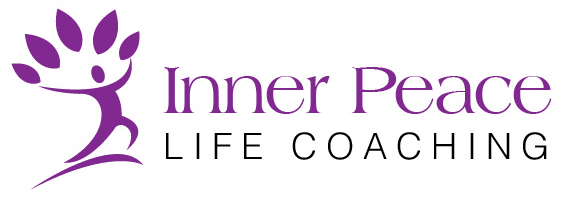Understanding Jealousy: A Solution-Focused Approach
Understanding Jealousy: A Solution-Focused Approach
Jealousy is a complex emotion often tied to feelings of insecurity, fear of loss, or comparison. While it’s natural to experience jealousy in various aspects of life, it becomes problematic when it hampers our relationships, career, or personal well-being. From a coaching perspective, jealousy can be seen as an opportunity for self-reflection, growth, and creating healthier behavioral patterns. This article explores how jealousy manifests, why it can be detrimental, and how coaching interventions can provide solution-focused techniques to overcome it.
What Is Jealousy?
Jealousy is often described as a multifaceted emotion involving fear, anger, and insecurity (Harmon-Jones et al., 2009). It arises from the perception that something valuable is being threatened or might be lost. In relationships, jealousy can often emerge due to fears of abandonment, lack of trust, or perceived competition.
While traditionally seen as a negative emotion, coaching approaches view jealousy as a signal that something deeply matters to the individual. The challenge, however, lies in understanding and responding to this emotion constructively.
Why Do We Get Jealous?
Jealousy can stem from several underlying issues, many of which are based on core beliefs and past experiences. Here are some common causes:
- Insecurity and Dependency:
When a person’s self-worth is heavily dependent on external validation, they are more likely to feel threatened if that validation seems to shift elsewhere. - Fear of Loss:
Past experiences of abandonment or betrayal can make an individual hypervigilant and more prone to jealousy. - Social Comparisons:
Constantly comparing oneself to others can lead to feelings of inadequacy and jealousy. - Unresolved Past Experiences:
Trauma from past relationships or childhood experiences can trigger fears of loss or betrayal in current relationships (Ellis, 1996).
Coaching tips and tools to Reframing Jealousy
Instead of pathologizing jealousy, coaching views it as a learning opportunity—a chance to dig deeper and identify what truly matters. A coaching approach to jealousy involves moving away from the reactive patterns of jealousy and focusing on actionable solutions. Here are some coaching strategies:
- Awareness and Mindfulness
The first step in overcoming jealousy is awareness. Through mindfulness practices, clients can observe their jealous thoughts without immediate reaction. Coaches encourage clients to pause, take deep breaths, and reflect on the thoughts and feelings behind their jealousy.💊 Coaching Tool: Ask your client to notice patterns in their jealousy—What triggers these feelings? How do they physically and emotionally respond? Encouraging clients to document these experiences helps to raise self-awareness and mindfulness.
- Reframing Jealousy as a Signal of Growth
Coaching sees emotions like jealousy as valuable feedback. When jealousy arises, it signals areas where an individual may need to grow or set healthier boundaries. By reframing jealousy as a constructive signal, clients can better manage their emotional responses.💊 Coaching Intervention: Challenge your client to reframe their jealous thoughts. For example, instead of thinking, “My partner is spending too much time with someone else,” guide them to reframe it as, “I value quality time with my partner, and this is an opportunity to communicate my needs.”
- Goal Setting and Action Plans
Once jealousy is acknowledged, coaching moves forward with a solution-focused approach. The goal is to replace emotional reactivity with constructive actions. This involves setting personal goals for self-development, improving communication, and building trust.💊 Coaching Tool: Help clients set SMART goals (Specific, Measurable, Achievable, Relevant, and Time-bound) to improve their emotional regulation and relational skills. For example, “I will practice active listening during conversations with my partner to strengthen our connection.”
- Building Self-Worth and Confidence
Jealousy is often rooted in insecurity. A coaching focus on developing self-worth and confidence can help individuals feel more secure in their relationships. This involves helping clients recognize their value beyond external validation.💊 Coaching Exercise: Encourage clients to engage in daily self-affirmations or gratitude exercises. For example, affirmations like, “I am worthy of love and respect,” help clients internalize a sense of self-worth that is independent of external factors.
- Exploring Limiting Beliefs
Many people hold limiting beliefs that drive jealousy, such as “I am not good enough” or “I always get abandoned.” Coaching focuses on helping clients identify and challenge these limiting beliefs.💊 Coaching Question: Ask clients, “What belief underlies this feeling of jealousy?” Once the belief is identified, challenge it by asking, “Is this belief serving you? What is a healthier belief you can adopt?”
- Communication Skills
Jealousy can create barriers to open communication in relationships. Coaching emphasizes the importance of clear, non-defensive communication.💊 Coaching Tip: Role-play difficult conversations with clients. Help them practice expressing their feelings without blame. For instance, teaching “I” statements such as, “I feel hurt when we don’t spend time together” can promote healthier dialogue.
- Cultivating Trust
In relationships, jealousy often signals a lack of trust. Coaching can help individuals and couples build or rebuild trust by addressing the fears behind the jealousy.💊 Coaching Strategy: Guide clients through trust-building exercises, such as setting small, achievable goals with their partner to demonstrate reliability and commitment.
Conclusion: Moving Beyond Jealousy
Jealousy is not an emotion to be feared or suppressed. From a coaching perspective, it is a call to action—a signal that deeper emotional needs must be addressed. By fostering self-awareness, reframing thoughts, and cultivating communication and self-worth, individuals can turn jealousy into an opportunity for growth. With the right coaching tools and mindset, jealousy becomes less of a burden and more of a gateway to stronger relationships and personal empowerment.
References:
- Dolan, M., & Bishay, N. (1996). The effectiveness of cognitive therapy in the treatment of non-psychotic morbid jealousy. The British Journal of Psychiatry, 168(5), 588-593.
- Ellis, A. (1996). The treatment of morbid jealousy: A rational emotive behavior therapy approach. Journal of Cognitive Psychotherapy, 10(1), 23-33.
- Harris, C. R. (2003). A review of sex differences in sexual jealousy, including self-report data, psychophysiological responses, interpersonal violence, and morbid jealousy. Personality and Social Psychology Review, 7(2), 102-128.
- Harmon-Jones, E., Peterson, C. K., & Harris, C. R. (2009). Jealousy: novel methods and neural correlates. Emotion, 9(1), 113-117.
- Knobloch, L. K., Solomon, D. H., & Cruz, M. G. (2001). The role of relationship development and attachment in the experience of romantic jealousy. Personal Relationships, 8(2), 205-224.
- Mullen, P. E. (1991). Jealousy: the pathology of passion. The British Journal of Psychiatry, 158(5), 593-601.
- Puente, S., & Cohen, D. (2003). Jealousy and the meaning (or nonmeaning) of violence. Personality and Social Psychology Bulletin, 29(4), 449-460.
- Salovey, P., & Rodin, J. (1984). Some antecedents and consequences of social-comparison jealousy. Journal of Personality and Social Psychology, 47, 780 –792.
Sajid Ahamed is a “Certified Trainer of NLP” and organizes John Grinder approved New Code NLP and NLP Master Practitioner Certifications Courses in India and the Middle East. He has more than 1000 hours of coaching experience and is an ICF accredited Professional Certified Coach (PCC). Apart from the Trainings, he covers a wide niche of coaching including Relationship Coaching, Parenting Coaching, Leadership Coaching.
To be updated with latest trends in Coaching and psychotherapy, join our Facebook Private Group.
For Further networking, follow us on Facebook | Instagram | Youtube












